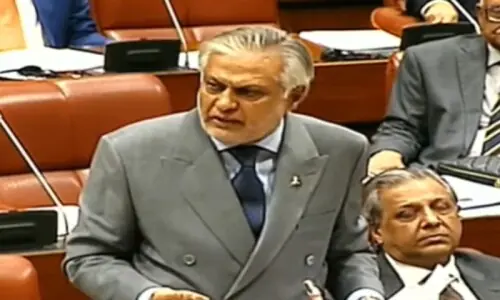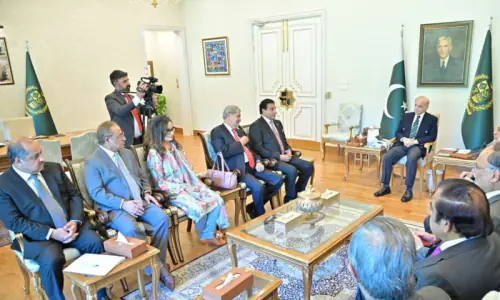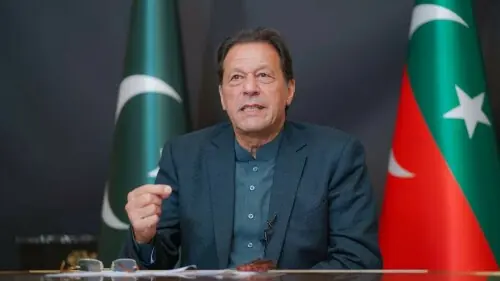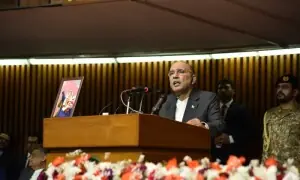PAKISTAN celebrates the 76th anniversary of its independence today in an environment of political uncertainty and economic fragility. It confronts multiple, interconnected challenges which have, over the decades, been feeding off and reinforcing each other in an unbroken cycle.
They include the structural crisis of the economy, erosion in the state’s institutional capacity, persisting education deficit, uncontrolled population growth, and climate change. Security challenges also persist with an unstable Afghanistan on the western frontier and a hostile India on the country’s eastern flank.
This is a moment for introspection as well as thinking about the future. Pakistan’s history shows that successive governments have spent a good deal of time fire-fighting in crisis management mode. The country has been so mired in one crisis after another that long-term planning has been elusive. So has thinking about durable ways to address the country’s challenges and ensure a brighter future for people.
True that Pakistan has weathered many storms and crises in the past. Its resilience has never been in doubt. This enabled it to overcome its troubles of the time. But present-day systemic challenges are fundamentally different. They are the cumulative consequence of decades of misgovernance and squandered opportunities. These problems can no longer be kicked down the road. All need to be tackled simultaneously if Pakistan is to move forward and embark on a path of economic and political stability and prosperity for its people.
The choice today is stark. Either the country continues to be trapped in a quagmire of weak governance, politics-as-usual, economic stagnation, and eroding public faith in state institutions, or it can take advantage of the social and economic changes underway to chart a new course. The choice is between a dysfunctional governance system and one that works and responds to the needs and aspirations of all citizens, not just a narrow power elite.
Can the old mould of politics be broken by socioeconomic changes underway?
A key impediment in breaking from the past is that representational and electoral politics have remained frozen in an old mode and increasingly lagged behind the social and economic changes that have been altering the country’s political landscape.
The economic centre of gravity has been shifting to urban centres from the countryside, but politics — and most political parties — have yet to catch up with all its implications. Several developments in recent decades offer opportunities to realign politics and governance to public purpose and not remain hostage to the interests of an elite whose preoccupation is with ‘rulership’ rather than public service.
This does not mean entrenched structures of politics can be transformed overnight or that long-persisting fault lines will easily fade away. But prospects for a departure from politics-as-usual are better today. This is due to a number of trends or factors.
The first is the emergence of a larger middle class in the context of increasing urbanisation. The 2023 census shows greater urbanisation, with almost 40 per cent of the population now living in urban areas — a significant increase from the last census in 2017.
The increase in the urban population has been evidenced in all provinces across the country. Although there is little agreement among Pakistani scholars about the size (and definition) of the middle class, there is no dispute that it has been growing in recent decades.
It is now an influential economic and social group that wants a bigger voice in national affairs. While not a homogenous group, it includes educated, professional groups as well as middle-income employees in state and business enterprises.
Members of the urban middle class in general are becoming more politically assertive in voicing their expectations and demands for better governance and a political system that is responsive to their needs and aspirations. Of course, to be an agent for change, they would have to act in an organised way.
The shift in the economic centre of power is also creating new political dynamics. An important indicator of this is the declining share of agriculture in national output. This has fallen to around 22pc at present. Urban Pakistan now accounts for much of GDP.
These economic realities are intersecting with technology-driven changes and the information revolution to disperse political power. This, in turn, has the potential to transform the old political power structure of clansand traditionally influential families, whose stranglehold on politics has obstructed reform.
The third trend is a more ‘connected’ society empowered by modern information and communication technology. Access to technology is making people better informed and more aware of their rights. Most people now have access to more than one information channel and are more engaged with political affairs.
The exponential expansion of the broadcast media has offered a potent platform to the public to raise issues and influence opinion. So has social media, especially for younger citizens. Although the print and broadcast media has been subject to official control and restrictions, it has still managed to hold governments to account, subject executive action to oversight and suggest policy courses for national problems.
All this is gradually changing the relationship between state and citizen as well as how people evaluate governments and their performance.
The fourth trend is the growth of a more diverse and vibrant civil society. With space opening up for newer civil society organisations to emerge, these have come to reflect the interests and concerns of a more politically aware urban society and enabled members of the middle class to press their views and interests with greater vigour. This holds the possibility of changing the nature and content of political engagement.
Together, these factors can be a counterpoise to traditional ways of conducting politics. In fact, the confluence of greater urbanisation, a more ‘connected’ society empowered by modern communications, and emergence of a larger middle class all offer a transformational opportunity, opening space for the emergence of challenges to traditional, hereditary and personalised politics.
The question is whether the increasing mismatch or disconnect between socioeconomic changes and family or clan politics can unleash dynamics to break the old political and governance mould anchored in patronage and clientelist politics rather than public policy. But a different kind of leadership is needed to understand and leverage these changes to transform the way Pakistan governs itself.
The writer is a former ambassador to the US, UK and UN.
Published in Dawn, August 14th, 2023































